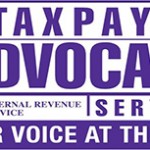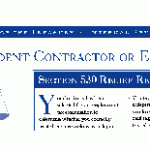Editor’s Note: This is a tough case because more often than not, late filing and/or late payment penalties regarding Estate tax returns are met with disapproval at the IRS. Indeed, the majority of the reported cases show the IRS victorious. In the last few years, I’ve handled quite a few of these cases. I’ve been retained by the attorney’s malpractice insurance carrier – – i.e., the lawyer was sued for malpractice by the client, and his insurance carrier hired me to work out something with the IRS. There are cases upholding reasonable cause for non-assertion of penalties, but unfortunately they are not the rule; rather, they are the exception.
In Thomas Freeman v. U.S., (DC PA 01/30/2012) 109 AFTR 2d ¶ 2012-403, a district court has held that an estate did not have reasonable cause to file its estate tax return after the deadline, notwithstanding that the attorney who was supposed to file it suffered from physical and mental ailments. Thus, the court upheld IRS’s assessment of a late-filing penalty and also found that IRS properly calculated the penalty and interest on it.
Background. Federal estate tax returns are required to be filed within nine months after the decedent’s death. (Code Sec. 6075(a)) Failure to do so may result in a penalty of up to a 25% addition to the tax owed. (Code Sec. 6651(a)(1)) The estate may avoid this penalty by proving that the failure to timely file a return was: (1) due to reasonable cause, and (2) did not result from willful neglect. (Code Sec. 6651(a)) Reasonable cause requires a showing that the taxpayer exercised ordinary business care and prudence but nevertheless was unable to file the return within the prescribed time. (Reg. § 301.6651-1(c)(1))
The estate tax shown on the return must be paid at the time and place for filing the return. Filing extensions don’t extend the time for payment. So, payment in full is due within nine months after the date of death, unless an extension for paying the tax is obtained. (Code Sec. 6151(a), Reg. § 20.6151-1(a)) Code Sec. 6651(a)(2) generally provides for an addition to tax in the case of any failure to pay the tax shown on any return required to be filed on its due date, unless it is shown that the failure is due to reasonable cause and not willful neglect.
Facts. Thomas Freeman was the executor of the estate of Robert Wooler, who died on Apr. 25, 2003. Soon after becoming executor, Freeman retained attorney Dennis Byrne to represent the estate. Byrne handled the administration of the estate, including the tax work. Mail to the estate went directly to his office and he managed all correspondence with IRS. He assumed responsibility for ensuring that the estate’s tax returns were filed and its tax payments made. Under Code Sec. 6075(a), the estate tax return was due on Jan. 25, 2004, nine months after Wooler died. The estate tax was payable on the same day. (Code Sec. 6151(a))
Freeman spoke to Byrne about filing the return soon after hiring him, and several times after that. Freeman relied on Byrne’s assurances that he would handle the estate’s tax obligations. Byrne became increasingly difficult to reach. Unbeknownst to Freeman, Byrne was suffering from physical and mental ailments. These ailments led Byrne to neglect his duties to the estate, including the filing of the estate tax return. Freeman later learned that Byrne had embezzled money from the estate.
In 2007, Freeman received a bill from IRS for the outstanding estate tax and related penalties and interest. IRS levied two penalties, one under Code Sec. 6651(a)(1) for filing the estate tax return late and another under Code Sec. 6651(a)(2) for paying the estate tax after the deadline. IRS also assessed interest on the overdue estate tax and the Code Sec. 6651(a)(1) penalty, but not on the Code Sec. 6651(a)(2) penalty.
Freeman then confronted Byrne, who advised him that the estate tax return was three years past due. On Mar. 12, 2007, the estate filed its return together with a payment of $138,179, the amount of tax due as shown on the return.
In late 2003 or early 2004, Freeman learned from Byrne that the estate had not yet obtained a valid federal tax ID number, which was needed to pay its income taxes. As a result of this failure, a total of $284,304 was withheld from the estate’s bank accounts. The funds were paid to IRS to satisfy the estate’s income tax obligations on Apr. 15, 2006. IRS determined that the estate’s income tax withholdings were more than enough to satisfy its income tax liability.
As a result, in April 2008, it credited $72,996 of those withholdings to the estate’s outstanding estate tax liability. IRS applied that credit to the estate tax as of April 15, 2006—the day it received the withheld funds for the income tax. It then issued an income tax refund of $211,308.
IRS also abated $11,219 in interest from the estate tax liability to account for the application of the $72,996 credit. Because the estate’s original payment with the estate tax return and the credit from the income tax withholdings satisfied the estate tax liability, IRS issued an estate tax refund of $12,227.
The estate appealed IRS’s assessment of the penalties and interest. The Office of Appeals abated the Code Sec. 6651(a)(2) penalty but refused to abate any other amounts. The estate then filed the suit in district court.
No reasonable cause for failure. Freeman argued that Byrne’s serious mental and physical ailments constitute reasonable cause to excuse the late filing. He contended that he reasonably trusted Byrne to file the return, but that Byrne did not do so because of his health problems.
Citing the Supreme Court ruling in Boyle, (S Ct 1985) 469 US 241, 55 AFTR 2d 85-1535, which said that the “failure to timely file is not excused by a taxpayer’s reliance on an agent, and such reliance is not reasonable cause for late filing under Code Sec. 6651(a)(1), the court rejected Freeman’s arguments. It said that Byrne’s disability was immaterial. Although the disability might explain why Byrne could not meet his obligations as the estate’s attorney, it did not excuse Freeman’s failure to file for purposes of Code Sec. 6651(a)(1). The responsibility for filing the return was Freeman’s. The taxpayer must show that he, not someone to whom he delegated the task, had reasonable cause to miss the filing deadline. The court found that Freeman had not so shown.
Penalty and interest on it were proper. Freeman also challenged the assessment of the failure to file penalty under Code Sec. 6651(a)(1) and the interest on it. He argued that the estate owned no penalty or interest because IRS, in abating the Code Sec. 6651(a)(2) penalty for late payment of the estate tax, effectively acknowledged that the tax was timely paid. The court observed that Freeman was not disputing that the estate paid the tax three years late. Rather, he appeared to be making an estoppel argumentwhen IRS abated the failure to pay penalty, it bound itself to a factual determination that prevents it from assessing a late-filing penalty.
The court rejected this argument. It said there is no reason that IRS, in abating a penalty under one statutory provision, should be held to any factual or legal conclusions for the purposes of determining the estate’s liability under another. If Freeman’s argument prevailed, IRS would be reluctant to abate some or all of any payment due.
Freeman offered another argument. Under this theory, he accepted the penalty, but challenged the amount of interest assessed on the penalty. He took issue with IRS’s decision to apply only $72,996 of the estate’s $284,304 in unused income tax withholdings to the outstanding estate tax liability. Although the withholdings were more than enough to pay the estate tax and the penalties and interest, IRS, without explanation, applied only a portion of the funds. Freeman argued that IRS should have credited the entire amount needed to pay the estate tax liability as of Apr. 15, 2006, the day it credited the $72,996, which would have stopped interest from accruing on the failure to file penalty.
The court also rejected this argument. Freeman did not show and the court did not find any authority requiring IRS to credit any of the income tax withholdings to the estate tax at any point. He could have, but did not, request IRS to use its excess income tax withholdings to satisfy the estate’s penalty and interest obligations. Rather, IRS credited the funds at its discretion. Because the Tax Code does not require IRS to apply the withholdings to the estate tax at any time, Freeman could not show that the estate was entitled to a refund on those grounds.
Related Posts
OFFICE HOURS:
Monday – Friday 9:00 am to 5:00 pm.
TELEPHONE HOURS:
We attempt to connect you with an Attorney up to 10 PM ~ 7 Days a Week!

"Ask An IRS Lawyer!"
Contact Page & Map to OfficePayment Plans Available






{ 0 comments… add one now }